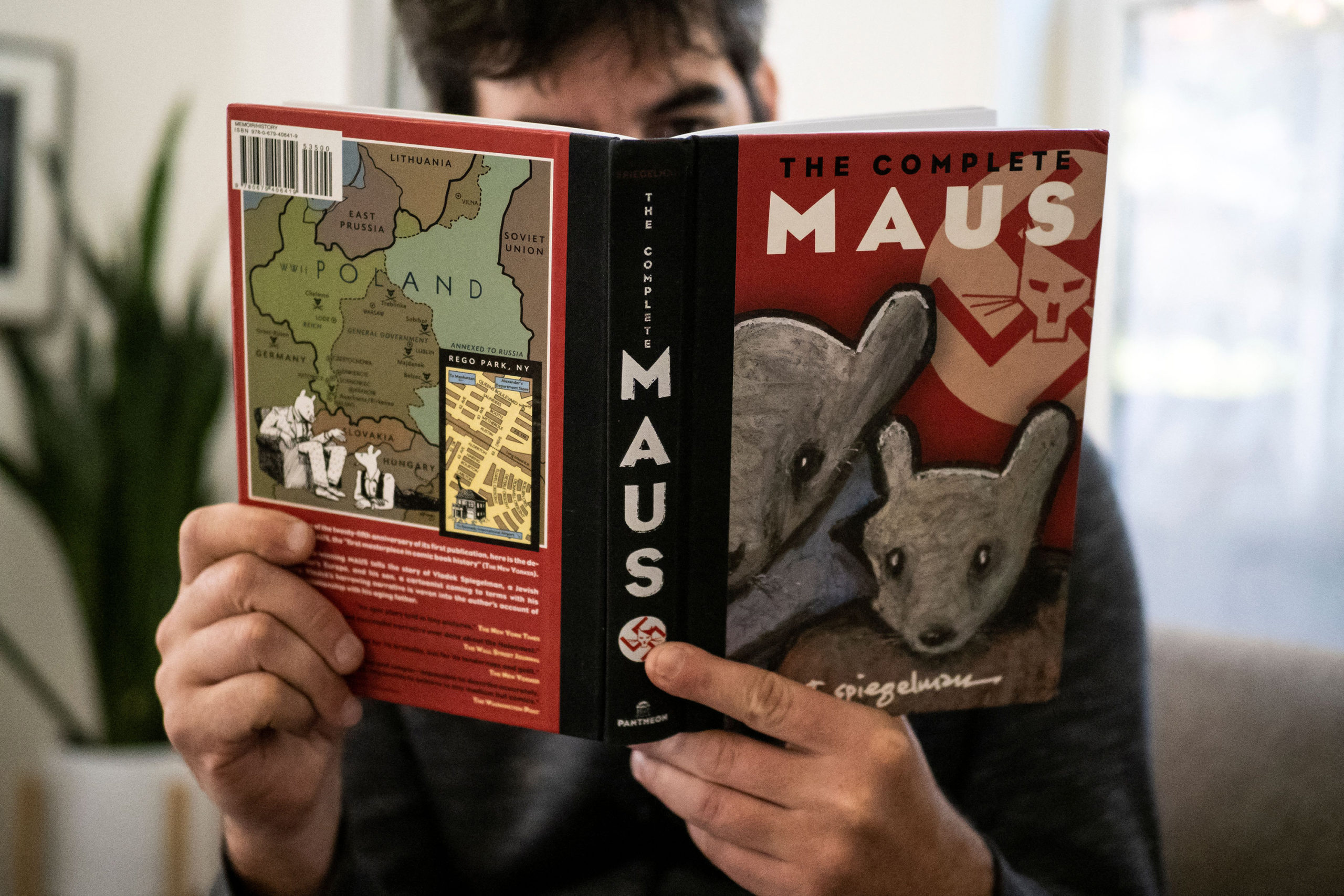On Jan.10, of this year an East Tennessee school board voted unanimously to remove the Pulitzer Prize winning graphic novel Maus from its middle school curriculum. The legendary comic book which portrays in vivid detail the grim realities of the holocaust was allegedly banned due to concerns over its, “unnecessary profanity” as well as its depiction of mature themes such as murder, violence, and suicide.
Art Spiegelman, the creator of the novel decried the school board’s decision calling it, “Orwellian.” Spiegelman also rejected the notion that the book was banned due to profanity. Accusing the school board of wondering, “why can’t they teach a nicer holocaust?”
News of the school board’s decision spread nationwide triggering another case of Streisand effect as Maus quickly shot up to #1 on Amazon’s bestseller list. As of this writing it’s still on the list at #3. Not bad for a book that came out 31 years ago.
Although criticism of the Maus ban was relatively bipartisan, the controversy surrounding the ban has only further fueled the already raging debate on whether or not parents should have a say in what their children are taught in school.
In recent years, questions such as whether critical race theory should be taught in K-12 schools or whether sex education should be more inclusive of the LGBTQ+ community have riled up parents all around the country.
It seems as though many parents don’t want their children exposed to new ideas and points of view that might clash with the ones that they were taught growing up. But the fact of the matter is that times change and people must change with them.
The two most common arguments we hear against CRT and LGBTQ+ inclusivity in schools are, “kids aren’t mature enough to learn about these things’ ‘ or “kids shouldn’t have to learn things that might make them uncomfortable.”
Censorship and resistance to change are a tale as old as time. It’s only natural to want to protect your kids from things that you think might make them uncomfortable but it’s important to remember a couple of things: One being that kids are often smarter, tougher, and more open minded than we give them credit for. Two being that the modern world is a more complicated one than the one we grew up in, and shielding your children from the uncomfortable truths they might learn in school (or anywhere really) isn’t protecting them. It’s protecting your ego and stunting your child’s emotional maturity.
The world isn’t a perfect place where nothing bad ever happens and everyone is treated equally. The earlier children grasp that concept the more empathetic and well adjusted they’ll be as adults. Teaching kids that everything’s fine and nothing should be changed for the sake of our own comfort does a huge disservice to them and more so to the people that they may impact later in life.
Let’s say you don’t care about any of this. You’re absolutely adamant about your child only learning the things that you’re comfortable with. Even if that turns them into an apathetic and myopic human being. That still doesn’t give you or anyone the right to take away other people’s ability to learn and access these different ideas.
If you don’t want your children reading a certain book, or learning about a certain aspect of their curriculum, the answer is not to have it banned for everybody else. Simply write your child a note excusing them from that portion of class. That way everybody wins.
Banning other people’s works and ideas only shows the weakness of your own. Allowing diverse ideas to compete with each other is the healthiest form of discourse.

